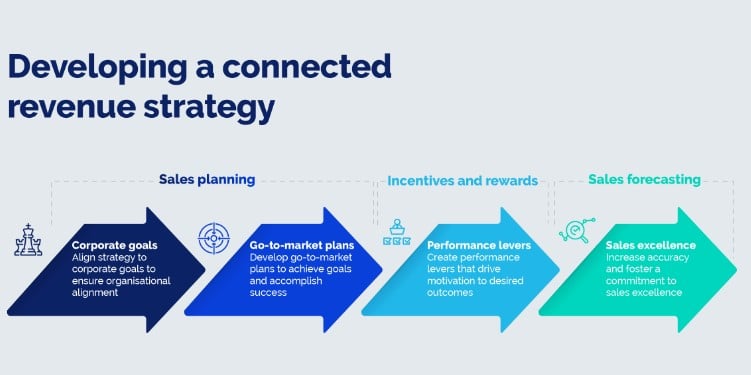How to Leverage CRM to Drive Sales and Boost Revenue – Customer Relationship Management (CRM) is a technology that helps businesses manage their interactions with customers and potential customers. It is an essential tool for businesses of all sizes that want to improve their sales and revenue. In this article, we will discuss how to leverage CRM to drive sales and boost revenue.

Introduction
Before we dive into the specifics of how to use CRM to drive sales and boost revenue, let’s briefly discuss what CRM is and how it works. CRM is a software system that allows businesses to store and manage customer information, including contact details, purchase history, and communication preferences. It enables businesses to improve their interactions with customers by providing insights into their behavior and preferences.
Understanding Your Customers
To effectively leverage CRM to drive sales and boost revenue, it is essential to understand your customers. This involves collecting and analyzing customer data to gain insights into their behavior, preferences, and needs. CRM provides a centralized location for storing this data, making it easy to access and analyze.
Creating Targeted Marketing Campaigns
With the insights gained from customer data, businesses can create targeted marketing campaigns that speak directly to the needs and preferences of their customers. By tailoring marketing messages to specific customer segments, businesses can increase the effectiveness of their marketing efforts, ultimately driving more sales and boosting revenue.
Improving Customer Service
CRM can also be used to improve customer service, which can lead to increased sales and revenue. By providing customer service representatives with access to customer data, businesses can ensure that they are providing personalized and effective support to customers.
Tracking Sales Performance
One of the most significant benefits of CRM is its ability to track sales performance. By analyzing sales data, businesses can identify areas of weakness and opportunities for growth. This information can then be used to make strategic decisions that increase sales and revenue.
Automating Sales Processes
CRM can also be used to automate sales processes, such as lead generation and lead nurturing. By automating these processes, businesses can save time and resources, while also increasing the effectiveness of their sales efforts.
Integrating CRM with Other Systems
To get the most out of CRM, it is essential to integrate it with other systems, such as marketing automation software and email marketing platforms. By doing so, businesses can create a seamless customer experience, from initial contact to post-sale support.
Training Staff on CRM Usage
To effectively leverage CRM to drive sales and boost revenue, it is essential to train staff on its usage. This includes providing them with the necessary skills and knowledge to use the system effectively, as well as ensuring that they understand its importance to the business.
Ensuring Data Security and Privacy
When using CRM, it is essential to ensure that customer data is secure and private. This involves implementing appropriate security measures, such as encryption and access controls, as well as complying with relevant data protection regulations.
Conclusion
In conclusion, leveraging CRM can be a powerful tool for businesses looking to drive sales and boost revenue. By understanding their customers, creating targeted marketing campaigns, improving customer service, tracking sales performance, automating sales processes, integrating with other systems, training staff, and ensuring data security and privacy, businesses can effectively use CRM to increase their bottom line.
FAQs
- What is CRM? CRM stands for Customer Relationship Management, which is a technology that helps businesses manage their interactions with customers and potential customers.
- What are the benefits of using CRM? The benefits of using CRM include improved customer understanding, targeted marketing campaigns, improved customer service, tracking sales performance, and automating sales processes.
- How can businesses effectively leverage CRM to drive sales and boost revenue? Businesses can effectively leverage CRM by understanding their customers, creating targeted marketing campaigns, improving customer service, tracking sales performance, automating sales processes, integrating CRM with other systems, training staff on CRM usage, and ensuring data security and privacy.
- What types of data can be stored in CRM? CRM can store various types of customer data, including contact details, purchase history, communication preferences, and customer behavior and preferences.
- Can CRM be used by small businesses? Yes, CRM can be used by businesses of all sizes, including small businesses. In fact, implementing CRM can help small businesses improve their customer relationships and increase sales.
- How can businesses ensure data privacy and security when using CRM? Businesses can ensure data privacy and security by implementing appropriate security measures, such as encryption and access controls, and complying with relevant data protection regulations, such as GDPR or CCPA.
- How often should businesses update their CRM data? Businesses should update their CRM data regularly to ensure that it remains accurate and relevant. This can be done by regularly collecting and analyzing customer data and updating the CRM system accordingly.